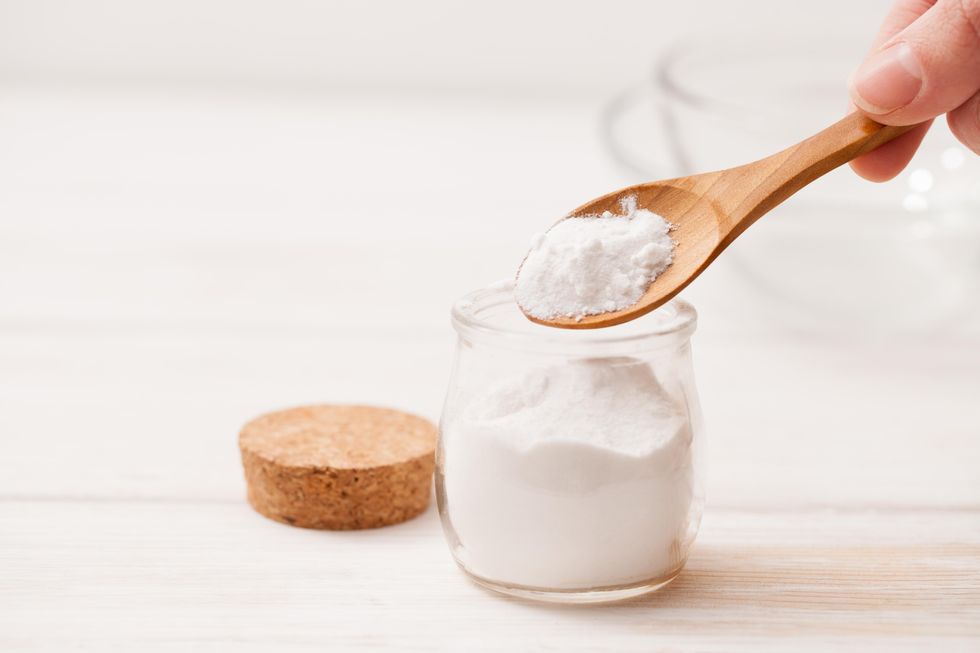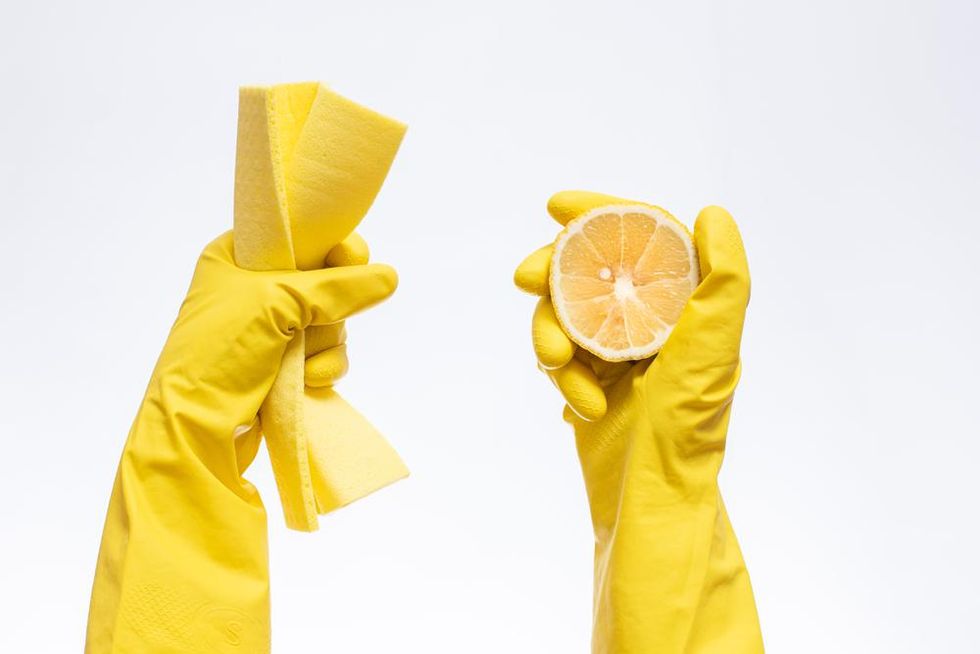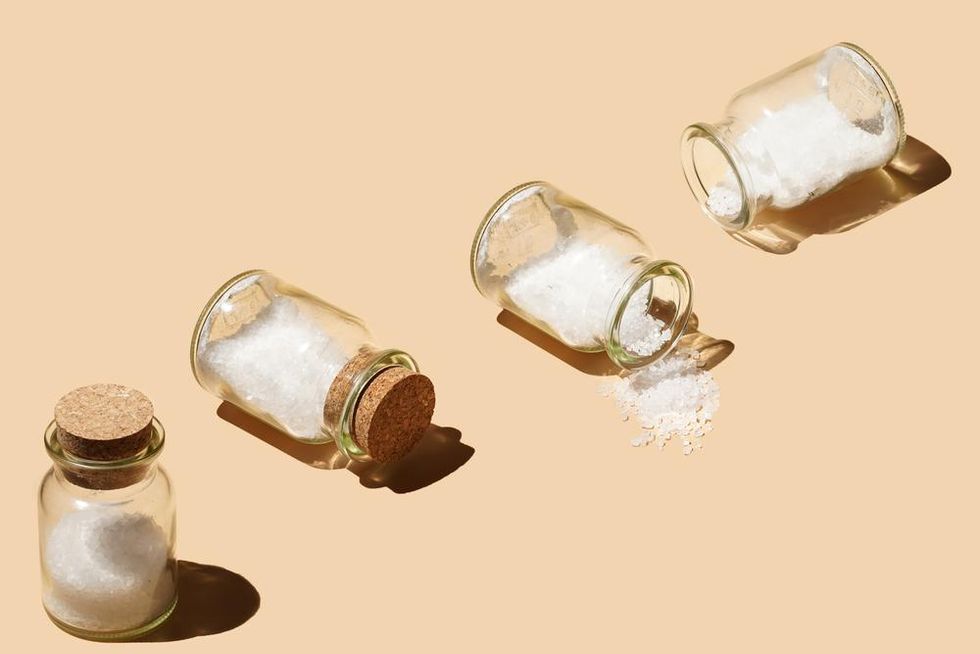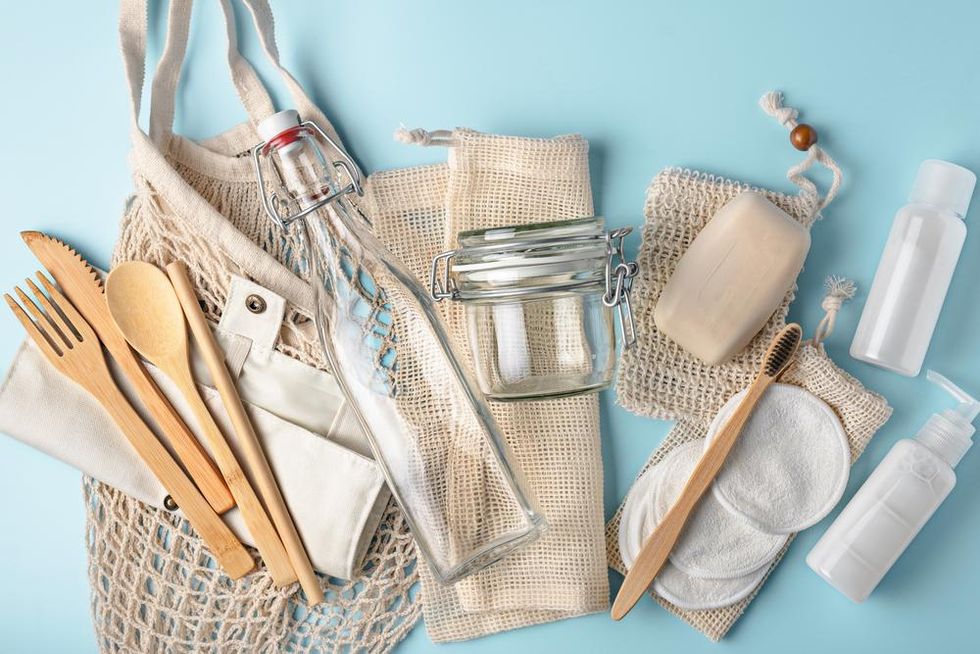You probably already have all these around the house!
Old-Fashioned Housekeeping Hacks That *Actually* Work — And Why
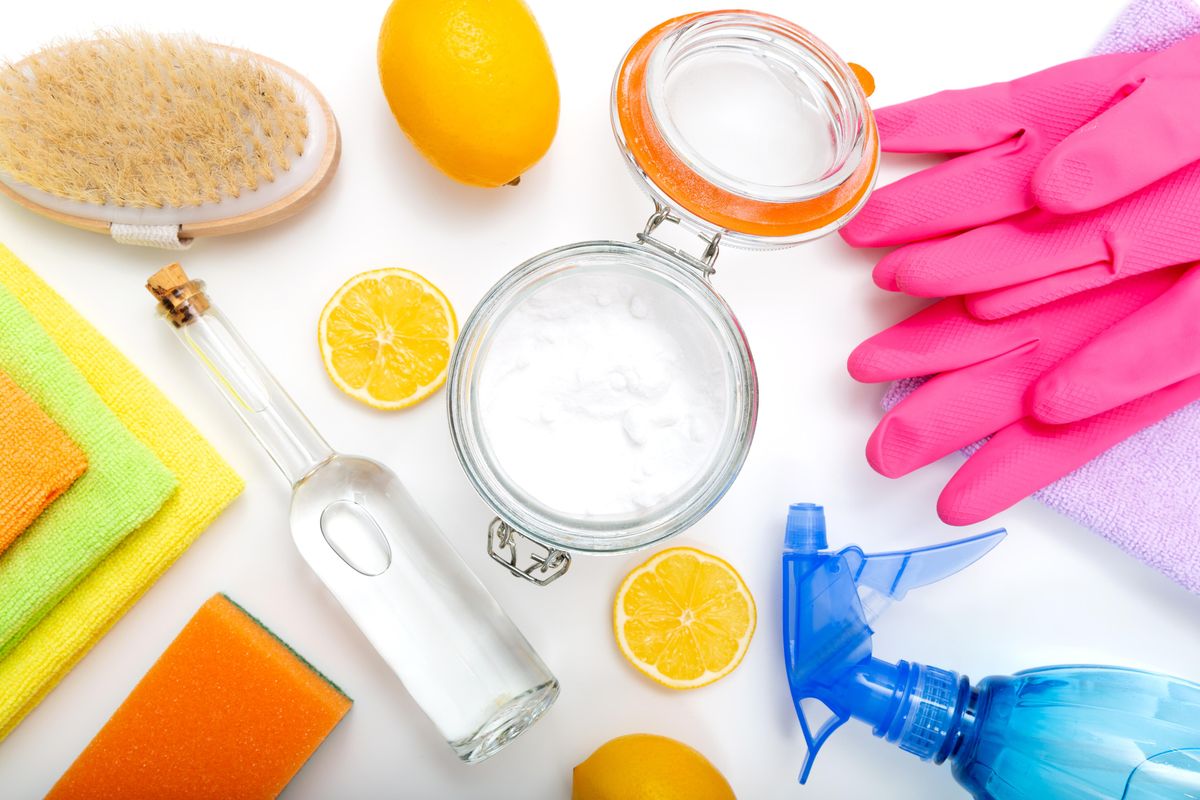
Home styles and decor trends have certainly changed over the decades, and unless you actually enjoy washing clothes and dishes by hand, improvements in home technology (like these smart home apps!) have made housekeeping tasks faster and less time-consuming. But did you know that many of our best, most trusted, most effective housekeeping tips are over a century (or more) old? Here are some tried-and-true old-fashioned housekeeping tips that you’ll want to try in your own home in 2022.
Baking Soda
For baking, gentle cleaning, and odor removal, nothing beats the versatility of baking soda. You can easily make a cleaning solution with baking soda and apply it to your sink, bathtub, or oven to remove spots and stains. Baking soda easily gets rid of coffee stains in your daily mug and can make glassware brighter. Many find that a bit of baking soda in the laundry helps remove odors and stains. It’s really good at eliminating odors, so sprinkle it on your carpeting or inside your dishwasher, or place an open jar inside the refrigerator, freezer, or closet. You can even use baking soda as a toothpaste.
Lemons
If you’re already squeezing lemon juice into your ice water, you’ll be happy to know that lemons make for an incredibly versatile cleaning hack. After you squeeze out the juice, toss that leftover peel down the garbage disposal for a quick, refreshing scent. Sprinkle salt on half a lemon and use it to clean and brighten your copper pots, or rub a lemon half over stainless steel or brass to remove spots. You can also toss part of a lemon in a bowl of water and heat it in the microwave to remove caked-on spills and deodorize the inside. The juice of a lemon can help dissolve grease and grime. Even further, the essential oil in lemons is considered to be antibacterial; it can be used as an insecticide or a wood furniture polish; and the scent can make any room smell fresh and clean.
Vinegar
Vinegar has long been a go-to for cleaning (a word of caution, though: It’s acidic and can easily etch or leave marks on natural stone like marble). For cleaning around the home, try using distilled white vinegar. Simply pour it on a dry cloth and rub it on stainless steel to remove fingerprints or spots. Use this same method to clean the inside of your washing machine and dishwasher, particularly the rubber gaskets and seals. When mixed with water, vinegar makes an excellent cleaning solution for flooring or other surfaces, like glass. Use it as a rinse in your coffee maker to remove oily coffee residue. Vinegar can remove odors too. Try boiling a tablespoon in a pot of water to eliminate household smells, or place an open bowl of vinegar in a stinky cupboard or fridge. Vinegar can also remove sticky residue, like a sticker or tag that won’t come off. You probably remember this from science class: Mixing vinegar with baking soda will produce an effervescent effect and can be a great combination for battling dirty dishes, or as a drain unclogger when followed with boiling hot water down the drain.
Salt
Salt is abrasive and a perfect weapon against caked-on, baked-on grime or grease. Sprinkle it on a cutting board to thoroughly remove debris, or in your mugs to get rid of coffee or tea stains. Salt is absorbent and can help soak up wine spills or other stains on fabrics or fibers. Throw some in the wash load to get out sweat stains or use it in the sink to remove lime buildup. Sprinkle salt on a lemon half and use it to scrub and polish copper. Use salt to melt ice, and in the summertime, you can even sprinkle salt on the windowsill to deter ants.
Recycling and Reusing Leftovers
It’s a smart idea to get to know your city’s policies on rubbish and recycling. For example, your yard waste bin might also collect food scraps, and your recycling bin might accept more types of plastic than you think. There are many leftovers in your home like glass jars, egg cartons, or newspaper, which can be repurposed all sorts of ways. Don’t forget the more “old fashioned” ways of using leftovers, like saving old linens, towels, and clothing for cleaning rags or polishing projects. Try using old toothbrushes for cleaning hard-to-reach areas of the home or car. Soot or ashes from the fireplace can be spread in the yard as a nutritious additive, and so can your used coffee grounds or egg shells. Seashells make excellent scraping tools, lemon rinds can be used to deodorize your kitchen sink, and newspapers can be utilized to clean your windows.
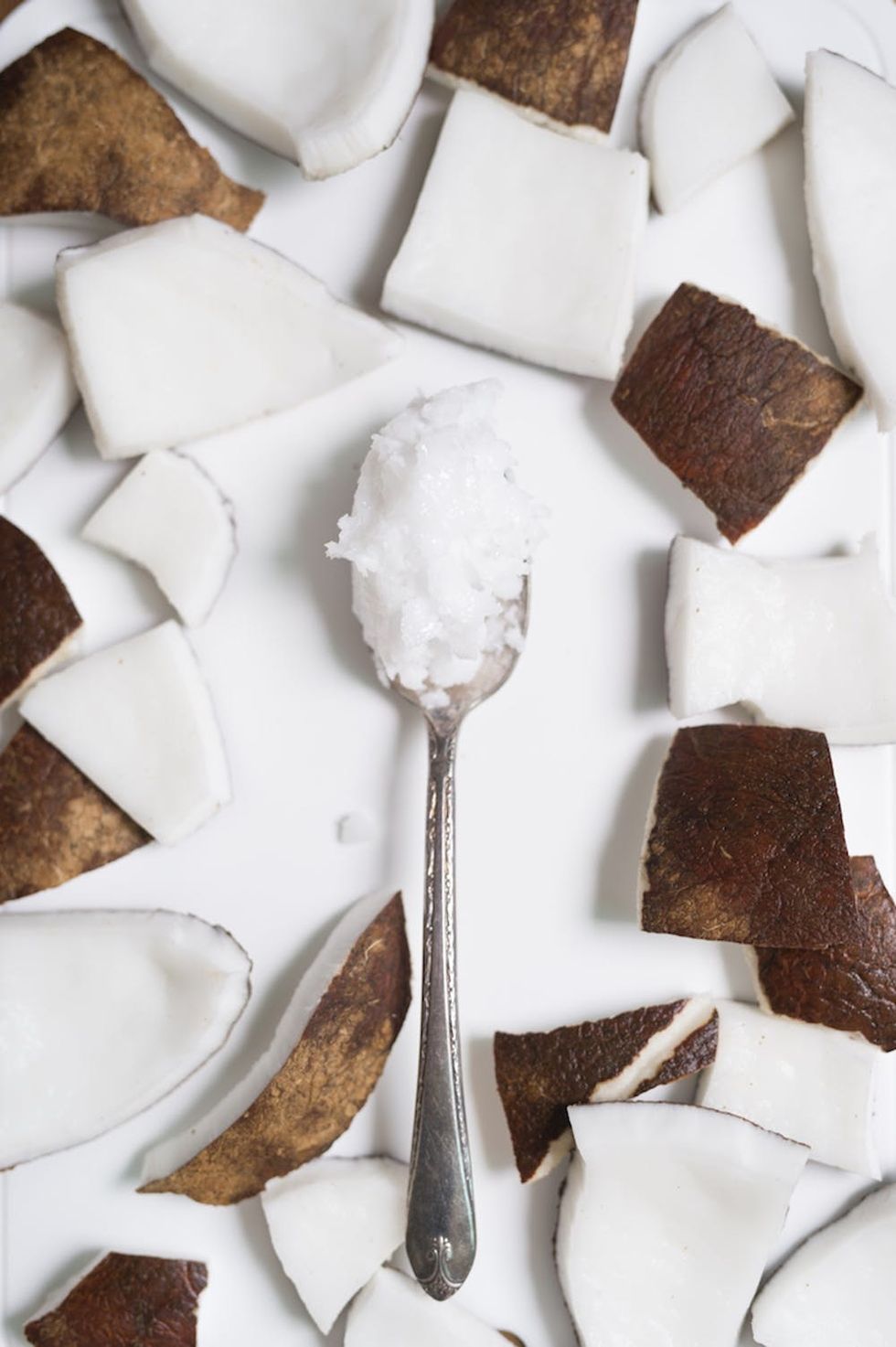
Oil and Fats
Both olive and coconut oil have historically been used for a multitude of purposes in food, medicine, personal health, and beauty. A thin coating of olive oil over your stainless steel refrigerator can help keep off fingerprints. Coconut oil does a great job seasoning your cast iron skillets or BBQ grates. A bit of oil or fat can help unstick a zipper, take the squeak out of a door hinge, and make drawers roll smoothly. A small amount of olive oil on a dry cloth can be used to polish wood furniture (just add some lemon essential oil, and it’ll smell even better than Pledge). Rub your garden tools with oil to keep them in good condition. Your shoes can look a bit shinier with a homemade oil polish. Coat your measuring cup with oil to prevent sticky substances, like molasses, from sticking. Oils work well for the body as well. Use them as moisturizers for hair or skin, for treating irritated or cracked skin, or for removing makeup. Even sticky Bandaids come off more easily when the adhesive is rubbed with oil.
Looking for more old-fashioned cleaning tricks? Follow us on Pinterest for more ways to hit refresh in 2022!
(Images: Shutterstock)
This post has been updated.



